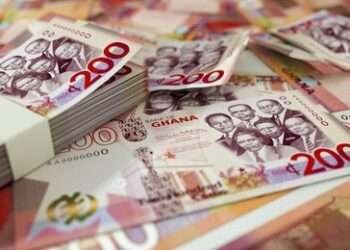The dramatic display of deception has always ended on a bad note and particularly in governance, transparency and accountability has been ultimately touted.
This is essentially relevant in cases where the citizens who are governed have become more discerning and government as a result, cannot literally or figuratively pull the wool over their eye even if they do so with the help of an external entity.
Ghanaians living under the current economic dispensation are griping in pain at the seeming mismanagement, corruption and lack of transparency glazing the front of an ‘insensitive’ government.
While the government has over the period painted a picture of the country being on a recovery path and ‘turning a corner’, the situation on the ground tells a different story as people either elope from the country to seek better opportunities or manage the situation and hope things get better.
Interestingly, when an external party, highly esteemed and recognized when it comes to global financial matters agrees with the position of government, it lends credence to an act of deception inimical to the growth of the economy and country at large.
Corroborating this is economist, Dr Nii Noi Thompson, who debunked claims by the International Monetary Fund (IMF) on the state of Ghana’s economy, insisting the economy has been dealt a body blow from botched financial sector reforms.
According to him, after a delegation from the IMF held a press conference in Accra, the Fund issued a statement that “waxed lyrical” about the “authorities’ strong policy and reform commitment,” improvement in the “fiscal and external position,” and what it called “signs of economic stabilization”, among many other platitudes that the Fund is known for.
However, Dr Thompson revealed that data from the Ghana Statistical Service easily confirmed fears that the country’s economy is in distress, with its “industrial core in meltdown mode”.
This, he noted, could potentially result in growing joblessness, poverty, and long-term loss of government revenue, all of which threaten the viability and sustainability of the Fund’s programme.
“The overall economy was dealt a body blow from the botched reforms of the financial sector, which posted an average negative growth of 7.3% from 2017 to 2019, worsened in part by mounting loan defaults by contractors owed by the government.
“Indeed, in November 2019, five months before Covid (and over two years before Ukraine), when the finance minister presented the 2020 budget to Parliament, he predicted that GDP growth would decline from 8.1% in 2017 to as low as 4.6% in 2022, contradicting the government’s manifesto pledge of growing the economy by ‘double digit’ over four years…”
Dr Nii Noi Thompson
Justifying his stance, Dr Thompson stated that apart from the mining and quarrying sector, which expanded by 3.5%, overall industrial production declined by nearly 2% in the second quarter of 2023, with the following sub-sectors driving the decline.
In the services sector, he explained that “trade, repair of vehicles, and household goods” shrank by -5.3%, while in agriculture, “forestry and logging” declined by -4.2%.
“The first quarter was worse, with a decline of 3.2% of the broad industrial sector, mainly water and sanitation, construction, and manufacturing. This means the first six months of 2023 was an industrial disaster for Ghana, and a setback for broader economic transformation.”
Dr Nii Noi Thompson
COVID used as smokescreen for Ghana’s economic decline
Furthermore, Dr Thompson stated that Ghana’s economy was in meltdown mode prior to Covid or Ukraine. He explained that if anything, Covid was a “financial bonanza” for the government.
“In 2020, the IMF gave Ghana $1 billion to combat Covid. Eventually, Ghana lost 1,461 of its citizens to the pandemic, the 22nd largest loss in Africa, implying about $685,000 per Covid death. By contrast, South Africa, with the largest Covid deaths in Africa – 102,595 – received from the Fund about $42,000 per death, or 6% of Ghana’s. (As of September 2023, the policy rate for South Africa was 8.25%, with an inflation rate of 5.4%, compared to Ghana’s 30% policy rate and 38% inflation).”
Dr Nii Noi Thompson
Moreover, Dr Thompson explained that the government, with the support of the IMF, has been blaming Covid and, to a limited extent, the Ukraine war for Ghana’s economic woes, as if Ghana was the only country affected by the pandemic.
He expressed that other countries, equally affected, sometimes worse, have moved on, with many even prospering. To this end, he questioned why not Ghana.
“… Ghana’s economic decline began long before the world even heard of Covid, thanks to a lethal combination of vindictive and haphazard policies, facilitated by a pervasive culture of incompetence, arrogance, corruption, and a fake religiosity that saw millions in public funds criminally diverted towards the construction of a cathedral instead of much-needed economic infrastructure.”
Dr Nii Noi Thompson
Clearly, Dr Thompson highlighted that the government’s problem is not lack of money, or the threat of a budget or trade deficit.
He emphasized that the economic distress being experienced is as a result of a “corrosive leadership deficit and the pig-headed” policies which must be addressed first before any real changes can be seen.
READ ALSO: Calls For Full Scale Inquiry Into Garu Brutalities Intensifies





















